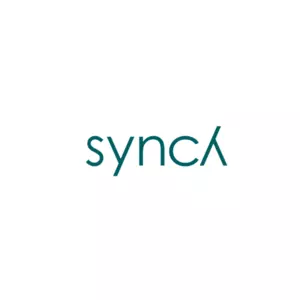This is the second article on the subject “Blockchain, Cryptocurrency, NFT:s and the Law”, published on Justly. The first article was published on 1 December 2021 and can be found here.
Cryptocurrency from a legal perspective
A crypto currency could be defined as “digital representations of value or rights which may be transferred and stored electronically, using distributed ledger technology or similar technology” (MiCA).
In Sweden, there is neither specific regulation regarding the marketing of cryptocurrency nor requirements on how cryptocurrency should be used or developed. Although the amount of regulation in respect of cryptocurrency is very low, this does not mean that the area is completely unregulated, but you must take into account specific legal requirements that may be relevant in the individual case.
What is a cryptocurrency?
I am sure you have heard about Bitcoin which is the most wide spread cryptocurrency and perhaps you have also heard about Etherum and maybe Litecoin or Dogecoin. Cryptocurrency is a digital and alternative currency. It is digital in that it is a means of payment that can only be used digitally (the asset cannot be withdrawn in banknotes or coins without first being exchanged to another currency) i.e. it exists in an online format only. It is not regulated by a state or central bank that guarantees the value of it. Cryptocurrency can nevertheless be used to buy goods and services such as operating only in closed contexts, such as in games or social media.
Cryptocurrency shall not be confused with electronic money. Electronic money, like cryptocurrency, is a monetary value that can only be used digitally. An example of electronic money is the so-called e-krona, a project where Sveriges Riksbank is investigating the possibility of launching a digital complement to cash. The difference between regular e-money and the e-krona is that a holder of the e-krona has the Swedish state as its debtor whereas a holder of regular e-money has the private company issuer as its debtor (which normally is a less stable debtor than the Swedish state). Electronic money is regulated in EU Member States by Directives (2009/110/EC) on electronic currencies and directives (2007/64/EC) on payment services. A cryptocurrency on the other hand, lacks an official and responsible issuer, which is normally the central bank of a country.
Cryptocurrency must not be confused with virtual tokens, financial instruments, or electronic money. These can all be assets in a blockchain context, but they are regulated differently by law. Virtual tokens have a definite value in a closed context, such as a gem in an online computer game that may be used for purchases of different skins or virtual weapons. These are not regulated by law, except regular consumer and sale of goods and services regulation, marketing etc. Financial instruments, such as shares or other securities, are governed by a vast amount of laws and regulations, many of which have been issued on a European Union level.
Cryptocurrency differs from the traditional currency as it does not (yet) have the conditions to constitute a well-functioning and stable means of payment. Sveriges Riksbank currently states that the risk that cryptocurrencies would affect financial stability is small. On an individual level however, there is great risk, and we have all read about private persons who have lost a vast amount of money through cryptocurrency scams and the fact that – even though being serious– cryptocurrencies fluctuate a lot in value from one day to another.
From a legal point of view, it is therefore important to classify each asset on a case-by-case basis in order to be able to place the asset in the right field of law and regulations.
Legal aspects
Tax
A large number of countries have issued guidance on how cryptocurrencies should be taxed. In Sweden, Bitcoin and cryptocurrency are considered a capital investment.
If you have sold, exchanged or paid with a cryptocurrency, you need to report this to the Swedish Tax Agency when you declare your taxes. If you have made a profit, you must pay taxes on your profit, and if you have made a loss, you may deduct part of it. The same rules apply to all cryptocurrencies.
When should you declare bitcoin and other cryptocurrencies? If you are a private individual, you must declare your cryptocurrencies if, for example, you have:
- sold cryptocurrency;
- exchanged a cryptocurrency for one or more other types of cryptocurrencies;
- exchanged a cryptocurrency for a FIAT currency, such as EUR paid with cryptocurrency when buying an item (for example, a pair of shoes) or a service (for example, a taxi ride);
- lent cryptocurrency; and
- used cryptocurrency as a bet.
The reporting shall be made on the income of capital form (K4) which you submit together with your income tax return.
When you have lost control of your cryptocurrencies, it does not automatically mean that you are entitled to loss deductions. Examples of such a situation may be that you have lost your private key to a virtual wallet and thus no longer have access to the cryptocurrency. Another example is that you lost access to your cryptocurrencies in connection with a hacker attack on a trading site. If you have lost your private key or if you have lost access to your cryptocurrencies in connection with a hacker attack on the trading venue, you are not entitled to make loss deductions. You should also not declare cryptocurrency in case of value increases or value declines on the cryptocurrencies you own unless you disposed of (sold) these.
Value added tax (VAT) does not have to be paid when money is exchanged to or from cryptocurrency. This was decided by the European Court of Justice in 2015 following a request for a preliminary ruling from the Swedish Tax Agency. Even when mining cryptocurrency, it is not required to pay VAT, regardless of whether it is natural or legal person conducting the business.
Financial activities
If a business consists mainly of offering the purchase of cryptocurrencies, the Currency Exchange and Other Financial Activities Act is applicable. The business is then considered as “other financial activity” and is subject to registration with the Swedish Financial Supervisory Authority (Sw. Finansinspektionen). Finansinspektionen shall ensure that the business complies with Anti Money Laundering and Terrorist Financing Act and the registration entails that all qualified owners of the business and its management will be subject to an ownership and management assessment.
Lack of consumer protection when buying cryptocurrency
When a new cryptocurrency is launched, consumers may be offered to buy and invest in the currency. This is called an initial coin offering (ICO) and is a way to get funding from the public in order to develop a business idea into a up and running company, like crowdfunding. The term ICO stems from IPO, Initial Public Offering, when a business is listed on a public exchange. In recent years, risks in investment in ICOs have been highlighted and Finansinspektionen have issued several warnings that consumers are strongly recommended to not participate in any ICO at all. The rapid increase in ICOs has resulted in the public losing money by investing in shady projects that the founders(?) never intend to complete or even launch.
MiCA
The EU Commission issued on 24 September 2020 its proposal for a regulation of markets and crypto assets and of amendment of Directive (EU) 2019/1937 (“MiCA”).
The proposal, which covers crypto-assets falling outside existing EU financial services legislation, as well as e-money tokens, has four general and related objectives.
- For crypto-asset markets to develop within the EU, there is a need for a sound legal framework, clearly defining the regulatory treatment of all crypto-assets that are not covered by existing financial services legislation.
- Support innovation. To promote the development of crypto-assets and the wider use of distributed ledger technology, it is necessary to put in place a safe and proportionate framework to support innovation and fair competition.
- Instil appropriate levels of consumer and investor protection and market integrity given that crypto assets not covered by existing financial services legislation present many of the same risks as more familiar financial instruments.
- To ensure financial stability. Crypto assets are continuously evolving. While some have a quite limited scope and use, others, such as the emerging category of ‘stablecoins’, have the potential to become widely accepted and potentially systemic. The proposal includes safeguards to address potential risks to financial stability and orderly monetary policy that could arise from ‘stablecoins’.
MiCA also introduces eight categories of crypto-asset services which will require a license for the service provider.
I intend to discuss MiCA in detail in a future article at Justly– stay tuned!
Final remarks
Even though crypto currencies have been available for more than ten years the regulatory landscape surrounding them is fairly scattered and thin. As with many new phenomena, technology moves faster than legislation and even though there have been some initiatives, there is still a lot to do before we have a safe and stable regulatory landscape surrounding crypto assets.
The absence of applicable rules to services related to crypto assets not (yet) covered by EU legislation leaves consumers and investors exposed to substantial risk. Further, some Member States have put in place rules at national level for crypto assets that fall outside the current EU regulation (if any). This leads to regulatory fragmentation, which distorts competition in the EU, which makes it more difficult for crypto asset service providers to scale up their activities cross-border and gives rise to regulatory arbitrage. We need to move! Move fast!



















